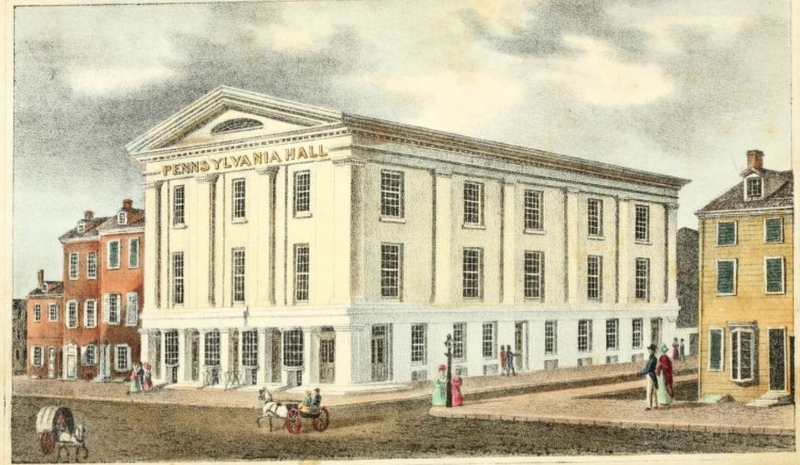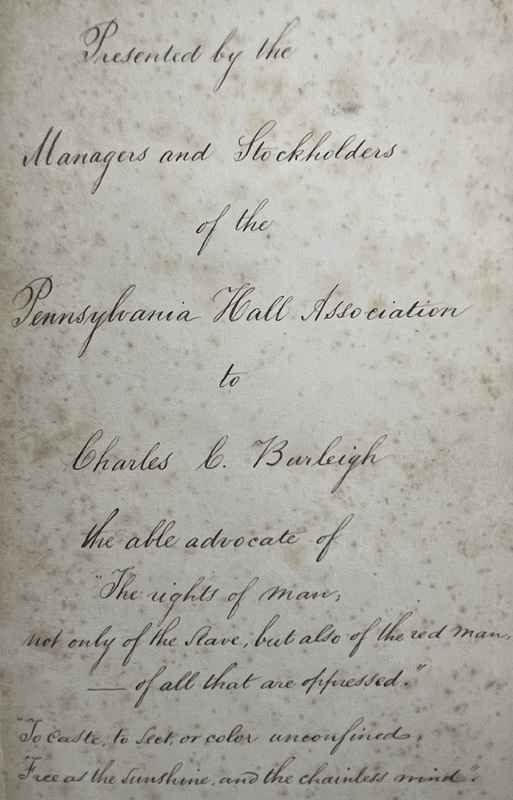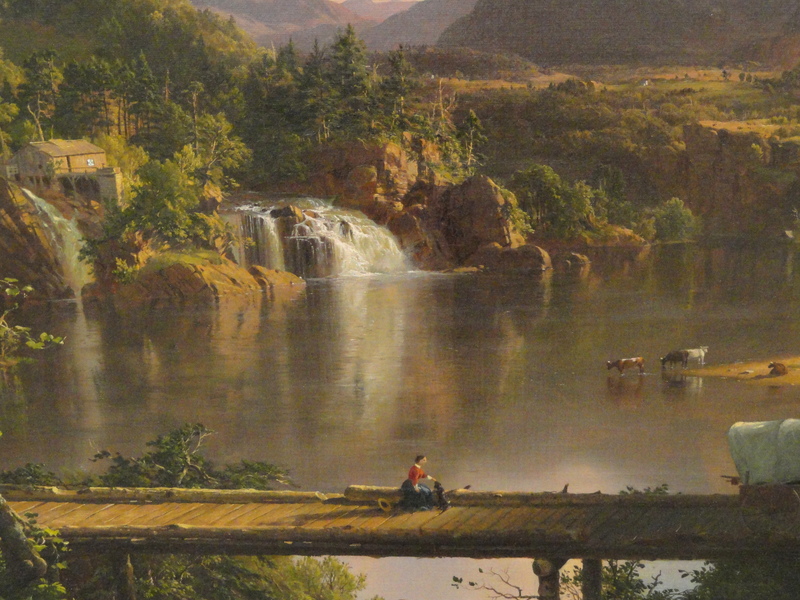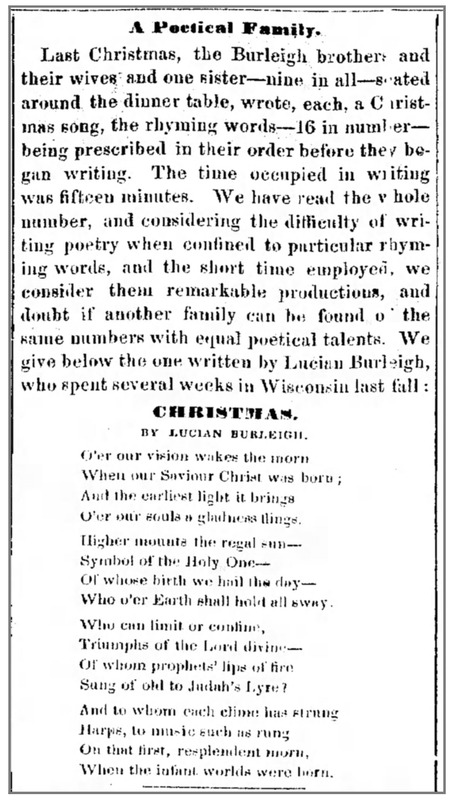Causes and Tangents
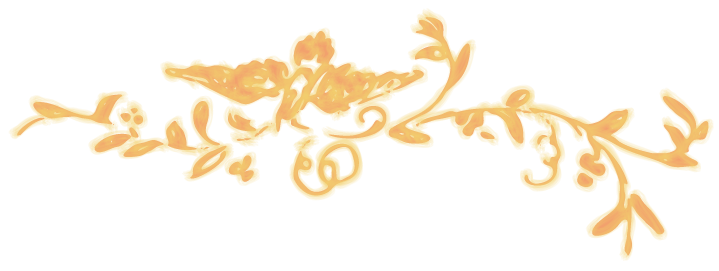
Major Causes Embraced by the Burleighs
-
1. Abolition
-
2. Equal Civil Rights across all races (including suffrage for Black men)
-
3. Women's Rights (including suffrage for women)
-
4. Temperance
-
5. Peace/Non-Violence/Non-Resistance
The boundaries of the "Benevolent Empire" of 19th-century America did not stop at these issues!
Other causes for which there is evidence of support or interest from the Burleigh family include:
- Humane Treatment of Children
- Humane Treatment of the Mentally Ill
- Humane Treatment of Animals
- Opposition to Capital Punishment
- Opposition to Masons (Anti-Masonry)
- Orthographic Reform/Phonography
- Labor Rights
- Opposition to Gambling
- Opposition to Tobacco Use
- Opposition to the War with Mexico and the Annexation of Texas
- Opposition to Dueling
- Native American Rights
The latter half of the 19th century brought some new causes, including
- Aid to Freedmen in the South
- Support for immigration and the civil rights of immigrants, especially from Asia
- Single Tax/Henry George-ism
- Anti-imperialism
In addition to these specific moral and political causes, the Burleigh family saga touches on some noted cultural developments of the time, and anticipates some of concern to our own time.
- Transcendentalism
- The History of Technology
- Developments in Print Technology and Visual Arts
- Religious Tolerance and Co-Existence
- Utopian Communal Living Experiments (Northampton; Vineland)
- LGBTQ Lives in an Era of Silence (Mary Grew, Margaret Jones [Burleigh] and Cyrus Burleigh)
Poetry and Beauty
As they engaged in the fight for justice and equality, every member of the Burleigh family also cultivated a sense of beauty in everyday life. Each member of the family - including the spouses of the core generation - loved poetry, wrote with care and flourish in everything from books to personal letters, and convey a sense of the joy of life in their activities.
This article, from an editor/friend of William Burleigh's, Icabod Codding, stands as a singular example of this family-wide aesthetic. It can speak for itself more eloquently than I can summarize it.
Source
“A Poetical Family,” Daily Free Democrat (Milwaukee, Wisconsin), December 24, 1853, p. 2

